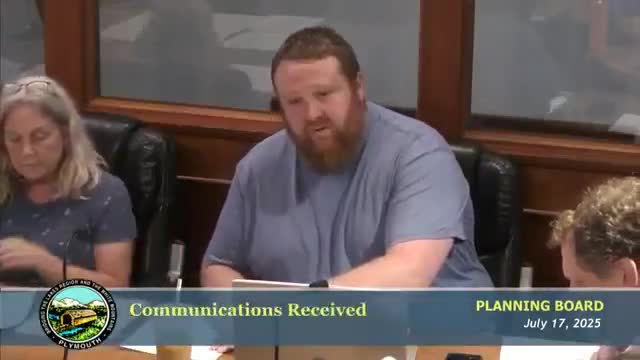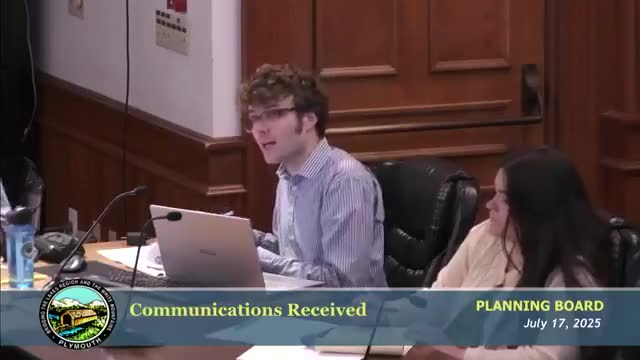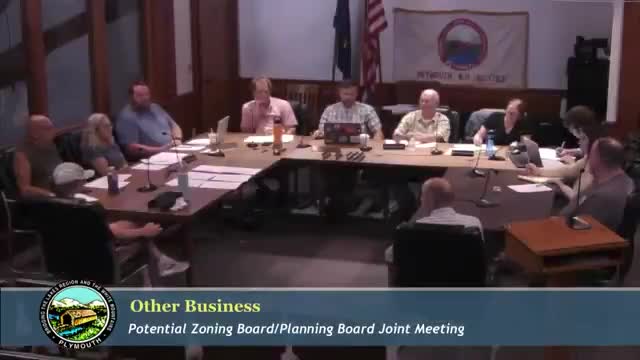Article not found
This article is no longer available. But don't worry—we've gathered other articles that discuss the same topic.

Planning staff asks select board to schedule hearings on Mid State cross‑access easement; Loon Lake culvert replacement nearing completion

Plymouth planners weigh sweeping state law changes that will force zoning rewrites

Planning Board appoints two members to new Select Board economic development committee

